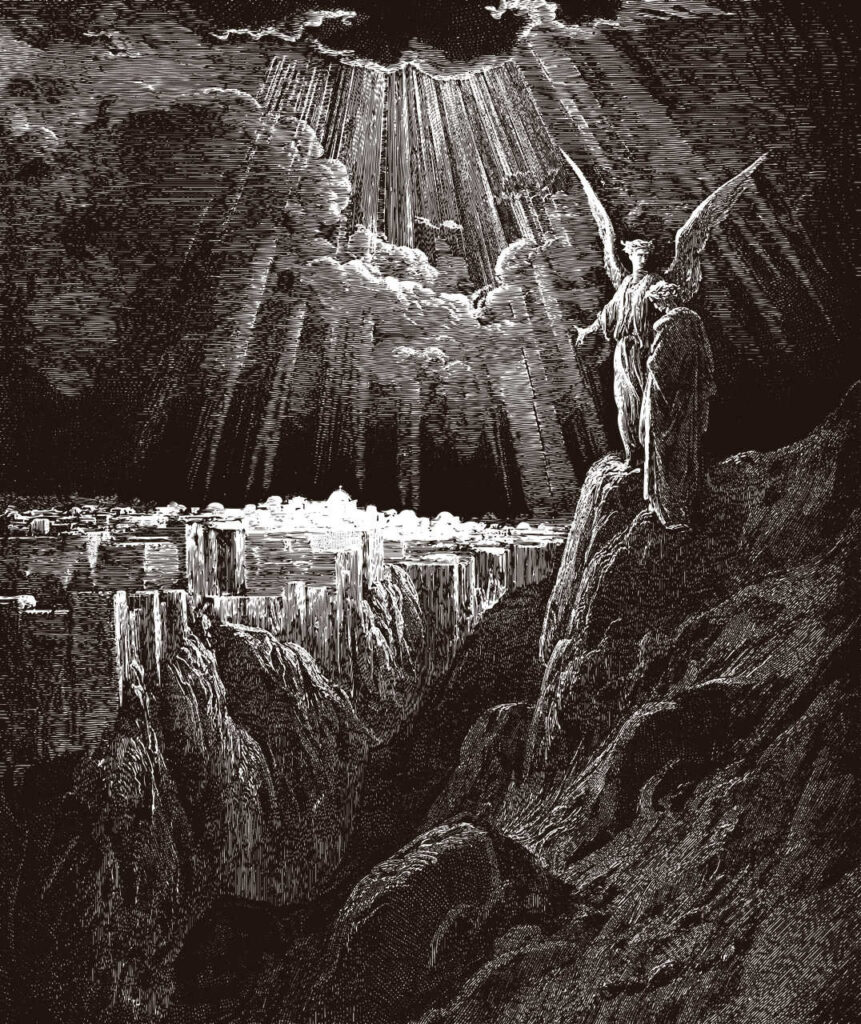Looking for a Better City to Call Home

The Lord made an ultimate promise to the heart of Abraham, of eternal rest in the heavenly city. “By faith he sojourned in the land of promise, as in a strange country, dwelling in tabernacles [tents] with Isaac and Jacob, the heirs with him of the same promise: for he looked for a city which hath foundations, whose builder and maker is God” (Hebrews 11:9-10). Later, “…Isaac called Jacob…and said unto him…[may God] give…the blessing of Abraham, to thee, and to thy seed with thee; that thou mayest inherit the land wherein thou art a stranger, which God gave unto Abraham” (Genesis 28:1,4).
The patriarchs of the Bible lived in faith. They could only see God’s promises from a great distance, like the way a person traveling can see his goal of a distant city. They acknowledged that they were “strangers and pilgrims” on the earth (see Hebrews 11:13) in their dying words. “For they that say such things declare plainly that they seek a country. And truly, if they had been mindful of that country from whence they came out, they might have had opportunity to have returned. But now they desire a better country, that is, an heavenly: wherefore God is not ashamed to be called their God: for He hath prepared for them a city” (Hebrews 11:14-16).
They were searching for a better country, a heavenly country. They abandoned the present things regarding future blessing in order to openly declare that they were searching for a new country.
The Bible patriarchs also died in faith. But this only applies to the ones who left their own country when God ordered them to. They were searching for a better country, a heavenly country. They abandoned the present things regarding future blessing in order to openly declare that they were searching for a new country. They gave up any earthly advantages when they reached out for what God had promised to them. He is therefore pleased to claim them as His own, and is willing to let His name be connected with the ones He has prepared a city for.

“But now they desire a better country, that is, an heavenly: wherefore God is not ashamed to be called their God: for He hath prepared for them a city (Hebrews 11:16). “An heavenly country,” or “a city” means believing in a place of a future blessed state of rest prepared for them by God. But we never see this city described in the Bible until its final chapters. This city is going to be the new home of all God’s people in heaven. In recognition of our faith in this promise, He’s called us by His name as the people destined to live in His heavenly city.
The Christian is “not of the world.” He may be in the world, but he doesn’t belong to it—because he has no real relationship with it.
The Apostle Paul felt ill at ease in the world, but it wasn’t this physical world that we know. In the New Testament, “the world” means the whole structure of society in which man has kept God out. This entire way of life has nothing in common with God’s mind or His will.
But the Christian is “not of the world.” He may beinthe world, but he doesn’t belongtoit—because he has no real relationshipwithit. “…the world hath hated them, because they are not of the world, even as I [Jesus] am not of the world. I pray not that Thou shouldest take them out of the world, but that Thou shouldest keep them from the evil” (John 17:14-15).
Christians look for a heavenly country and an eternal inheritance, because, by faith, they‘ve seen some things natural men don’t see. They are therefore sincerely seeking the inheritance of Christ. They have set their hearts on it, and they won’t be denied or forced to turn around. They no longer pay attention to things of this world because the glories of the better country have come into their view.
Seeing those glories makes the glow of all earthly splendor, worldly pursuits and delights grow dim. They’ve looked beyond this worthless, dying world to the country that is heavenly and better, and the city which they have been made citizens of by faith. Their hearts have therefore been made pure by faith. They now look for the things that are above, considering themselves strangers and pilgrims on earth. But citizens of the world don’t consider themselves “strangers on the earth.” The things the world values aren’t the same things that the followers of God value.

“And I John saw the holy city, new Jerusalem, coming down from God out of heaven, prepared as a bride adorned for her husband” (Revelation 21:2). The new Jerusalem is a literal city. All the materials it’s made of have all been distinctly stated in the Bible. It will come down out of heaven from God as the place prepared for His people.
There is a close relationship between the new heaven, new earth, and new Jerusalem. And this city is completely new. It doesn’t belong to this world, or to the millennium. It belongs to all of eternity. Jesus said to “Him that overcometh…I will write upon him the name of My God, and the name of the city of My God, which is new Jerusalem, which cometh down out of heaven from My God…” (Revelation 3:12).
We need to be like Abraham, our spiritual father, who “…looked for the city which hath the foundations, whose builder and maker is God” (Hebrews 11:10).
“[God] hath prepared for them a city…” (Hebrews 11:16), which is that better, heavenly country which Abraham and the patriarchs looked for. There will be others there, and many will have access to it (see Revelation 21:24-26). But it will be the home of the Church in particular, the wife of the Lamb of God (see Ephesians 5:27-32).
This heavenly city will also be quite vast, since it will be a cube of at least fifteen hundred miles each way (see Revelation 21:16). But most of what we can imagine of this city will have to be in the realm of faith for now. We need to be like Abraham, our spiritual father, who “…looked for the city which hath the foundations, whose builder and maker is God” (Hebrews 11:10).
Christians are strangers or exiles here on Earth. We’re traveling home—but this world is not our home. “Here have we no continuing city, but we seek one to come” (Hebrews 13:14). And, by faith, we’ve come to realize our heavenly summons and heavenly home. We’re no longer citizens in this world, but in heaven!
[Additional image credits: Featured image (when applicable) Yannes Kiefer on Unsplash; Opening image by Providence Lithograph Co./public domain]


